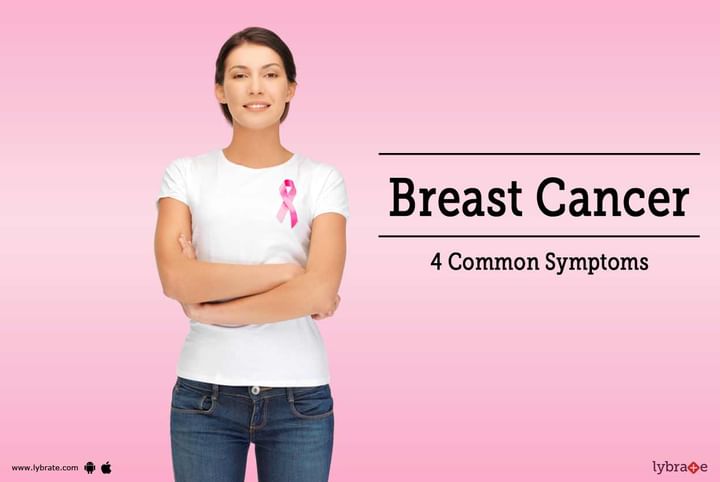Breast Cancer - 4 Common Symptoms
Breast cancer is a type of a cancerous infection that develops in the skin cells of the breast. This condition is more commonly diagnosed after you have skin cancer and is more common in women than men. There are certain signs to identify this disease, which are as follows.
1. Breast lumps - Lumps are patches of skin that occur due to the thickening and swelling of the skin. Breast lumps is a very common phenomenon for women but that does not always lead to a breast cancer; however, frequent and reoccurring instances of the same increases the risk of breast cancer. A breast lump is easily identifiable through the naked eye as it looks different from the surrounding tissues.
2. Blood discharge - The nipple is one of the most sensitive areas in the human body. In case of women, it is meant to emit milk during pregnancy, in order to feed the infant externally. A probable symptom of breast cancer can also be a frequent discharge of blood from the nipple without any visible damage or injury.
3. Breast changes - If you are experiencing any visible changes in the size, appearance or shape of the breast, then it is an indicative sign that you may have breast cancer. Thus, it is of paramount importance that you observe, touch and physically examine your breast regularly for changes. If there is any major change detected then it is advisable to consult a doctor.
4. Inverted nipple - The tip of the nipple is generally bulging and pointing outwards both in cases of men and women. But sometimes the tip of the nipple is pushed inside due to excessive suction caused by the skin tissues present inside the breast around the nipple area. This suction forces the nipple to grow inwards which is abnormal and might harm the breast and skin in various ways.
However, apart from these main symptoms, some other signs are also there that increase your chances of being diagnosed with breast cancer. They are redness or pitting of the skin over your breast like an orange, peeling or scaling of the pigmented area around the nipple, dimpling of the skin on the breasts, and such others. If you wish to discuss about any specific problem, you can consult a Gynaecologist.



+1.svg)
